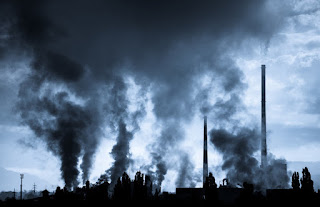The University of Surrey has developed a new and cost-effective catalyst to recycle two of the main causes behind climate change -- carbon dioxide (CO2) and methane (CH4).
In a study published by the Applied Catalysis B: Environmental, scientists have described how they created an advanced nickel-based catalyst strengthened with tin and ceria, and used it to transform CO2 and CH4 into a synthesis gas that can be used to produce fuels and a range of valuable chemicals.
The project is part of the Engineering and Physical Sciences Research Council's Global Research Project, which is looking into ways to lessen the impact of global warming in Latin America. The study has led the University of Surrey to file a patent for a family of new "supercatalysts" for chemical CO2 recycling.
According to the Global Carbon Project, global CO2 emissions are set to rise in 2017 for the first time in four years -- with carbon output growing on average three per cent every year since 2006.
While carbon capture technology is common, it can be expensive and, in most cases, requires extreme and precise conditions for the process to be successful. It is hoped the new catalyst will help make the technology more widely available across industry, and both easier and cheaper for it to be extracted from the atmosphere.
Read more at Transforming Greenhouse Gases: New 'Supercatalyst' to Recycle Carbon Dioxide and Methane

No comments:
Post a Comment